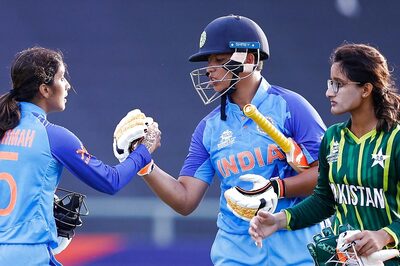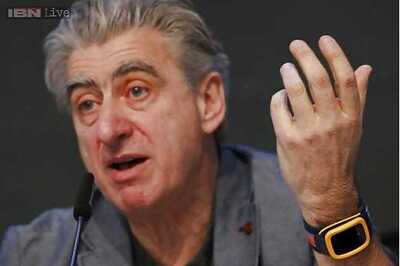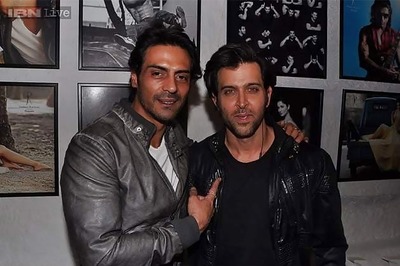
views
From the start, the Indian government knew that it was entering an arena without the basic requirements- going by an unwritten but standard understanding of UN tradition. The UN Secretary General's job goes to a candidate from a relatively small country - one which so far has been a non-nuclear state.
To add to those disqualifications, India's nominee had never held a high official position in his own country- something previous secretary-generals (with the exception of the outgoing S.G. Kofi Annan) had all done. Most were career diplomats, in addition Trygve Lie and Kurt Waldheim served as foreign ministers in their own countries, Dag Hammerskjold served in the Swedish Cabinet and Academy, U.Thant was an advisor to several Burmese Prime Ministers, Boutros-Ghali, a member of the Egyptian parliament.
In this particular race too: Ban Ki-moon is the South Korean Foreign minister, Vaira Vike-Freiberga is the President of Latvia, Sri Lankan Jayantha Dhanpala and Jordanian Prince Zeid Al Hussain represented their countries at the UN and senior advisers to their governments, Surkiart Sathirathai was the Thai Deputy Prime Minister, Ashraf Ghani the former Afghan Finance Minister.
I only point this out- not in any way to belittle Mr. Tharoor's considerable achievements, just to point out the greater suitability of his rivals to that specific post.
Lets be honest- from the start it was not about India's nomination to the race for UNSG- there was no pool of Indian candidates from which Tharoor was picked. It was a question of whether to support Tharoor, who had already decided to run, or not to. And nominating him- an Indian citizen, may have been the logical thing for the government to do.
But nominating a candidate for whom we could build no regional consensus was the illogical thing to do.Tharoor won endorsements from powerful African countries- but it will remain a blot for our copybook, that closer home he won none. In fact, there were as many as three South Asian candidates in the running. And even when the Sri Lankan candidate withdrew from the race, it was in favour of the South Korean, not the Indian.
Given all of this, what baffles one is how our Prime Minister can continue to praise our candidature, calling it "very creditable". At a time when India wants to sit at the big table- along with permanent members of the Security Council, how can it possibly run in a race for an essentially administrative position, against relatively tinier countries, and then be proud of coming second?
Gandhigiri isn't about coming second, it is about being larger than the others in the race; so large that we keep ourselves out of the competition unless the prize is really worth it. It's about taking as many people along with us as we can in our 'satyagraha' of "challenging the international order".
It's about knowing our own worth.
United Nations Secretaries-GeneralSecretary-General Nationality Dates in Office Trygve Halvdan Lie Norwegian 1946–53 Dag Hammarskjold Swedish 1953–61 U Thant Burmese 1962–71 Kurt Waldheim Austrian 1972–81 Javier Perez de Cuellar Peruvian 1982–91 Boutros Boutros-Ghali Egyptian 1992–96 Kofi Annan Ghanaian 1997– About the AuthorSuhasini Haidar Suhasini Haidar is Diplomatic Editor, The Hindu. Earlier, she was a senior editor and prime time anchor for India's leading 24-hour English news chann...Read Morefirst published:October 04, 2006, 13:57 ISTlast updated:October 04, 2006, 13:57 IST
window._taboola = window._taboola || [];_taboola.push({mode: 'thumbnails-mid-article',container: 'taboola-mid-article-thumbnails',placement: 'Mid Article Thumbnails',target_type: 'mix'});
let eventFire = false;
window.addEventListener('scroll', () => {
if (window.taboolaInt && !eventFire) {
setTimeout(() => {
ga('send', 'event', 'Mid Article Thumbnails', 'PV');
ga('set', 'dimension22', "Taboola Yes");
}, 4000);
eventFire = true;
}
});
window._taboola = window._taboola || [];_taboola.push({mode: 'thumbnails-a', container: 'taboola-below-article-thumbnails', placement: 'Below Article Thumbnails', target_type: 'mix' });Latest News
I know- no point flogging a dead horse, kicking a dog when its down, crying over spilled milk etc etc. But it is still a cause of amazement to me how our establishment is reacting to the candidature, and now the loss of our nominee in the UN top job race.
From the start, the Indian government knew that it was entering an arena without the basic requirements- going by an unwritten but standard understanding of UN tradition. The UN Secretary General's job goes to a candidate from a relatively small country - one which so far has been a non-nuclear state.
To add to those disqualifications, India's nominee had never held a high official position in his own country- something previous secretary-generals (with the exception of the outgoing S.G. Kofi Annan) had all done. Most were career diplomats, in addition Trygve Lie and Kurt Waldheim served as foreign ministers in their own countries, Dag Hammerskjold served in the Swedish Cabinet and Academy, U.Thant was an advisor to several Burmese Prime Ministers, Boutros-Ghali, a member of the Egyptian parliament.
In this particular race too: Ban Ki-moon is the South Korean Foreign minister, Vaira Vike-Freiberga is the President of Latvia, Sri Lankan Jayantha Dhanpala and Jordanian Prince Zeid Al Hussain represented their countries at the UN and senior advisers to their governments, Surkiart Sathirathai was the Thai Deputy Prime Minister, Ashraf Ghani the former Afghan Finance Minister.
I only point this out- not in any way to belittle Mr. Tharoor's considerable achievements, just to point out the greater suitability of his rivals to that specific post.
Lets be honest- from the start it was not about India's nomination to the race for UNSG- there was no pool of Indian candidates from which Tharoor was picked. It was a question of whether to support Tharoor, who had already decided to run, or not to. And nominating him- an Indian citizen, may have been the logical thing for the government to do.
But nominating a candidate for whom we could build no regional consensus was the illogical thing to do.Tharoor won endorsements from powerful African countries- but it will remain a blot for our copybook, that closer home he won none. In fact, there were as many as three South Asian candidates in the running. And even when the Sri Lankan candidate withdrew from the race, it was in favour of the South Korean, not the Indian.
Given all of this, what baffles one is how our Prime Minister can continue to praise our candidature, calling it "very creditable". At a time when India wants to sit at the big table- along with permanent members of the Security Council, how can it possibly run in a race for an essentially administrative position, against relatively tinier countries, and then be proud of coming second?
Gandhigiri isn't about coming second, it is about being larger than the others in the race; so large that we keep ourselves out of the competition unless the prize is really worth it. It's about taking as many people along with us as we can in our 'satyagraha' of "challenging the international order".
It's about knowing our own worth.
United Nations Secretaries-General
Secretary-General
Nationality
Dates in Office
Norwegian
1946–53
Dag Hammarskjold
Swedish
1953–61
U Thant
Burmese
1962–71
Kurt Waldheim
Austrian
1972–81
Javier Perez de Cuellar
Peruvian
1982–91
Boutros Boutros-Ghali
Egyptian
1992–96
Kofi Annan
Ghanaian
1997–




















Comments
0 comment